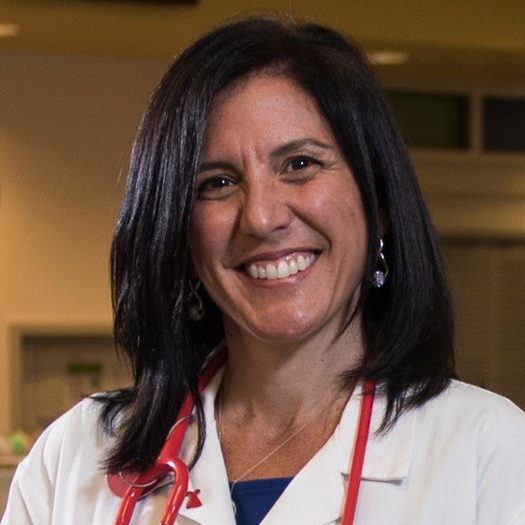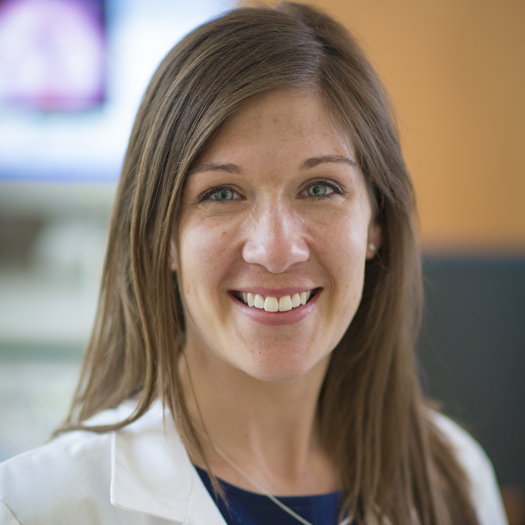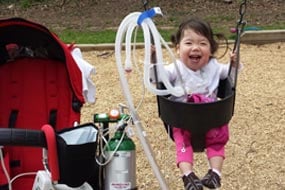
Xiomara's Story

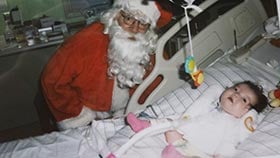
When Xiomara’s mother Elena, was 20 weeks pregnant, her ultrasound uncovered something that didn’t look right. Elena was referred to Children’s National Hospital to meet with Mary Donofrio, M.D., in the Prenatal Cardiology Program (formerly known as the Fetal Heart Program) who flagged a few potential heart issues and continued to monitor Xiomara throughout the remainder of the pregnancy.
Late in the pregnancy, Xiomara stopped growing and her movements slowed down. After many discussions with the doctors and Elena’s midwives, a decision was made to induce labor at 39 weeks. Elena said the delivery was amazing, quick and easy. The day after she was born, Xiomara was transported to Children’s National for further monitoring of her heart and vitals.
“It is always scary having your baby in an intensive care setting, but I’m so grateful that it was at Children’s National and that our family had many conversations with our care team prior to the birth,” Elena said. “We had discussed several possible scenarios, including immediate transfer and surgery. It helped immensely knowing that ahead of time and being prepared for that.” After a few days of monitoring, Xiomara’s care team and her family decided to move forward with heart surgery to repair an open hole in her aorta, known as Patent Ductus Arteriosus (PDA), a heart problem that can occur right after birth.
Xiomara spent time recovering in the Cardiac Intensive Care Unit (CICU) and then was transferred to the Neonatal Intensive Care Unit (NICU), where she spent the next few months. “The time we spent in the NICU is all a blur. There was so much going on with Xiomara, and we were so scared, but we had a few consistent nurses who we loved and who took great care of Xiomara,” Elena said.
Ongoing complications led to the need for a tracheostomy, which is a surgical procedure to create an opening through the neck into the trachea (or windpipe). After the procedure, a tube (called a trach) was placed through this opening to provide an airway and to remove secretions from the lungs. A ventilator connects to her trach tube to help Xiomara breathe. Xiomara needed the tracheostomy to help her weakened trachea and lungs stay open and allow her to breathe. She needs a ventilator to give extra support to her lungs, and the trach was really important to allow her to make the transition to home care.
“Prior to this surgery, we didn’t know anything about trachs and had never seen a baby with one,” Elena said. “It was a really scary time, but we did what we had to do to help Xiomara.”
“Xiomara’s parents have amazed me in their ability to champion the tracheostomy, and they have been a beacon for parent education and tracheostomy safety initiatives, which were inspired by the way they manage and care for Xiomara’s tracheostomy,” said Pamela Mudd, M.D., Xiomara’s otolaryngologist at Children’s National who performed her tracheostomy surgery. “Elena and her family have handled this increased responsibility with such grace.”
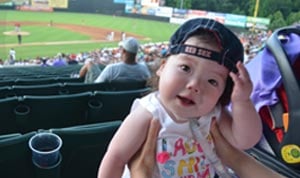 “The adjustment to home after five months in the hospital was absolutely brutal. It was really, really tough,” Elena said. “Children’s National did a great job training us on Xiomara’s medical needs, but we were not prepared to handle the everyday things. Loading our baby into the car sounds simple enough, but we had to do it while she was literally connected to four different pieces of equipment. Transporting Xiomara anywhere – even within the house – was overwhelming.”
“The adjustment to home after five months in the hospital was absolutely brutal. It was really, really tough,” Elena said. “Children’s National did a great job training us on Xiomara’s medical needs, but we were not prepared to handle the everyday things. Loading our baby into the car sounds simple enough, but we had to do it while she was literally connected to four different pieces of equipment. Transporting Xiomara anywhere – even within the house – was overwhelming.”
Eventually, Elena joined a Facebook support group for moms with children who have trachs. In that group, she met a mom whose son also is a patient at Children’s National and who had gotten a trach several months before Xiomara. “Meeting another mom who was going through the same challenges as I was really helped me,” Elena said. “I felt like there was hope and that I could get through this. It was a huge turning point.”
Now two years later, Elena is reaching out to other moms who have children with trachs. She helps organize playdates and mom’s night out events with local families in the trach community. She’s additionally put together numerous presentations, tips and diagrams with the social work team in the NICU to help families like hers. Most recently, she and other local moms worked together to collect and deliver medical supplies to children with trachs and ventilators who were affected by the massive flooding in Louisiana. “It is incredibly lonely having a medically complex child. So when we find one another, we instantly become family and help and support each other,” Elena said.
“Elena has established an amazing community of parents who have children with trachs,” said Edie Mead, a social worker in the NICU at Children’s National. “She has not only helped these families feel less isolated and overwhelmed by organizing social events, she also has been a tremendous source of support and information for new parents leaving the NICU who find themselves faced with the challenges of taking home a baby with complex needs.”
“Xiomara is an adorable little girl who is not letting the fact that she requires a tracheostomy and ventilator to help her breathe get in the way of learning how to explore the world,” said Daniel Felten, M.D., a complex care specialist at Children’s National. “She is learning sign language and is rapidly gaining skills to communicate her needs. Her parents have made sacrifices to provide Xiomara with the best opportunity to grow and thrive.”
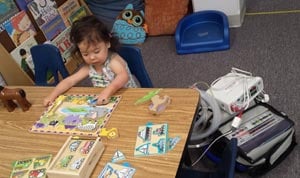 Today, Xiomara is still followed by many specialists at Children’s National who are helping her and her family stay on top of Xiomara’s care and plan for her future.
Today, Xiomara is still followed by many specialists at Children’s National who are helping her and her family stay on top of Xiomara’s care and plan for her future.
Despite this, Elena says Xiomara is just like most 2-year-olds: she loves to play, meet new people and has her occasional temper tantrum. She even started attending nursery school recently — with her trach bag, ventilator, oxygen tank and pulse oximeter in tow.
“We are so proud of all the progress Xiomara has made and we love her so much and want the best for her — just like every parent does. I hope everything we’ve learned from our experience can help other families in our situation know that they aren’t alone. It’s not easy, but it does get easier,” Elena said.


